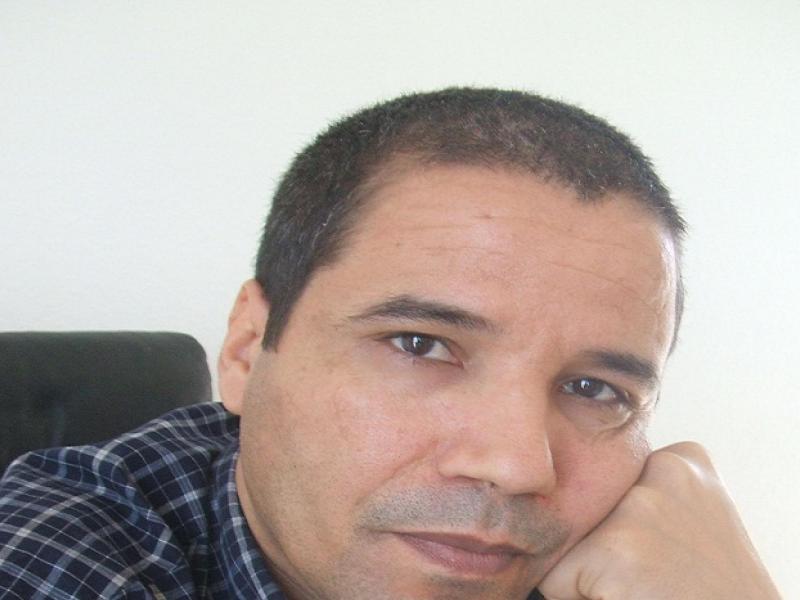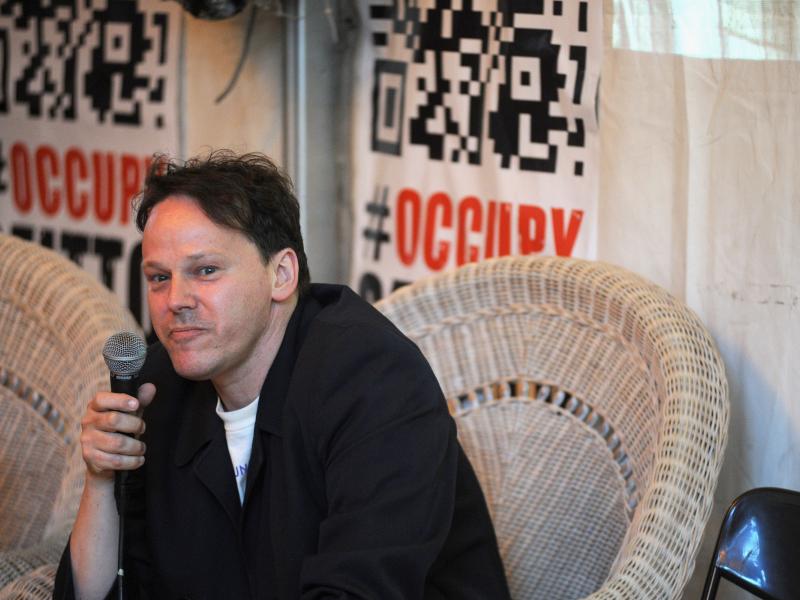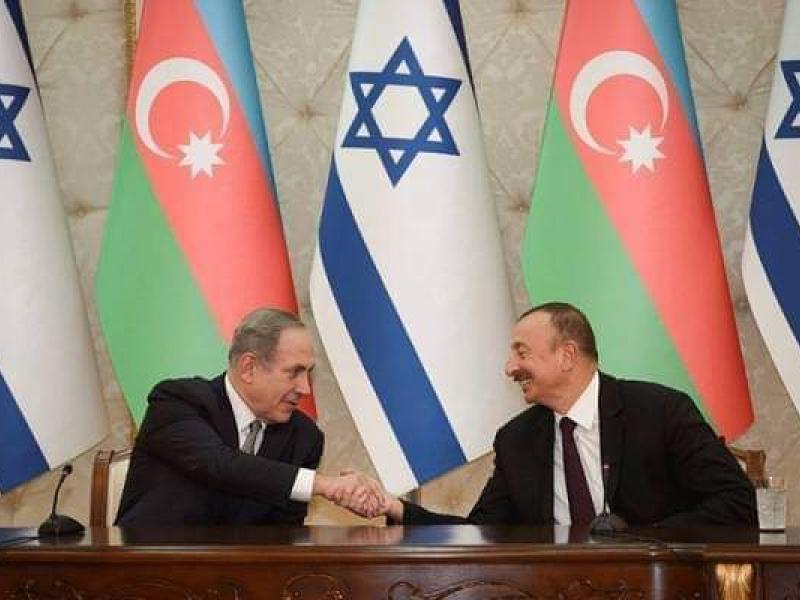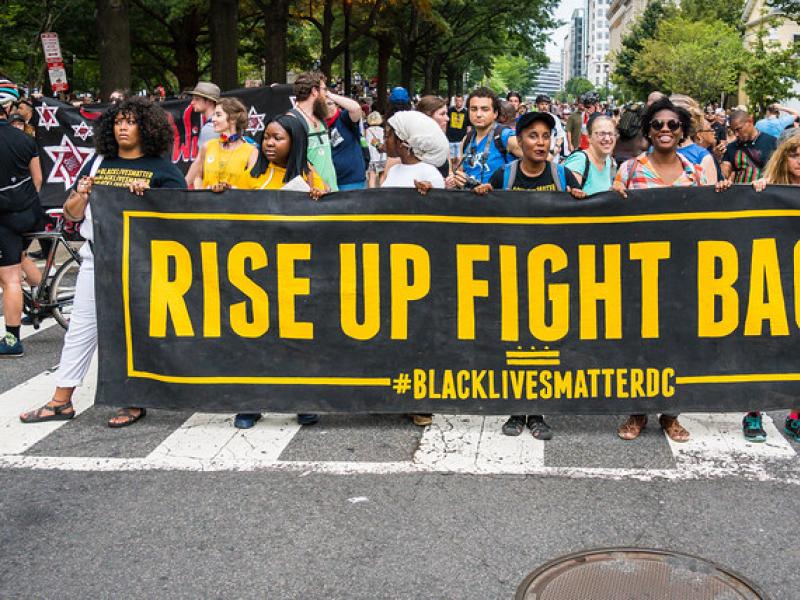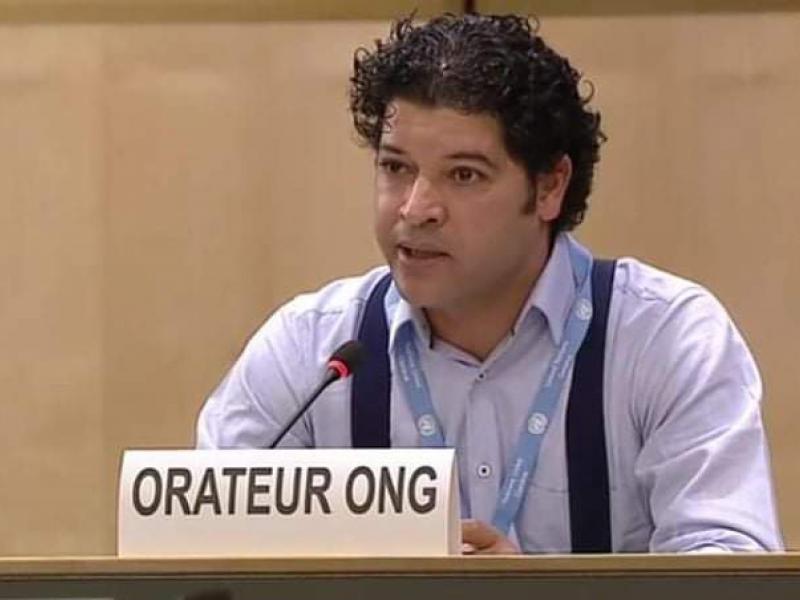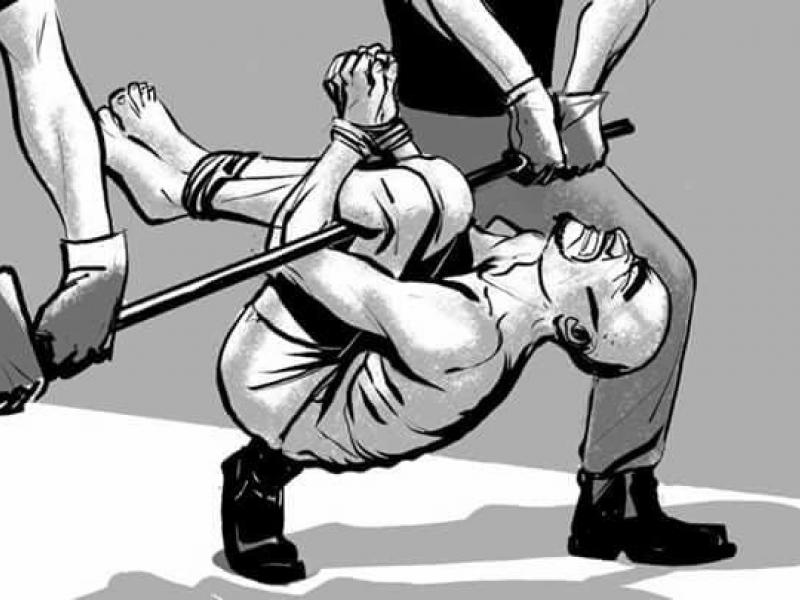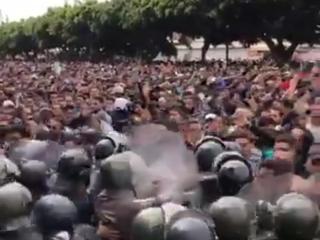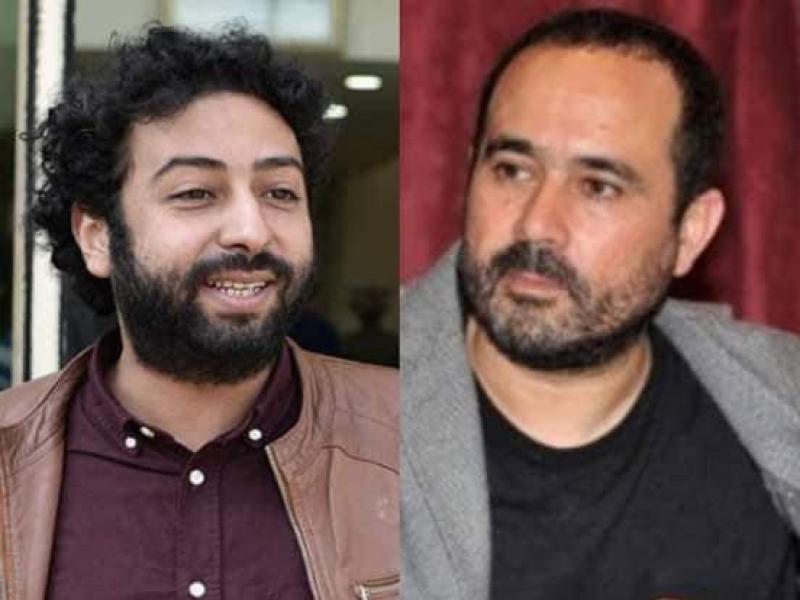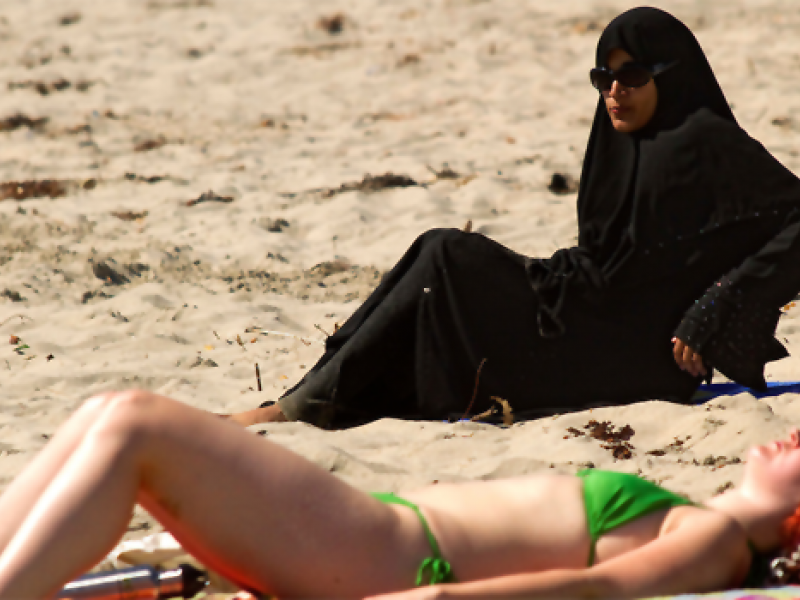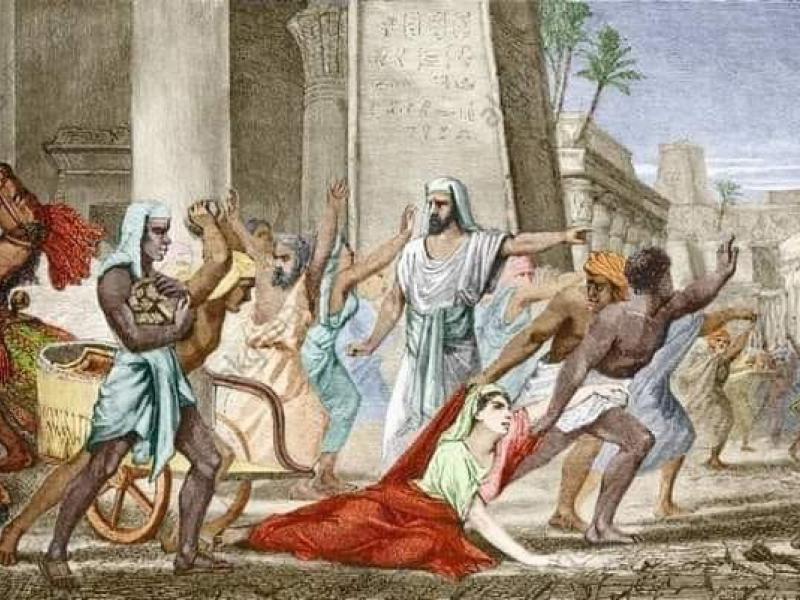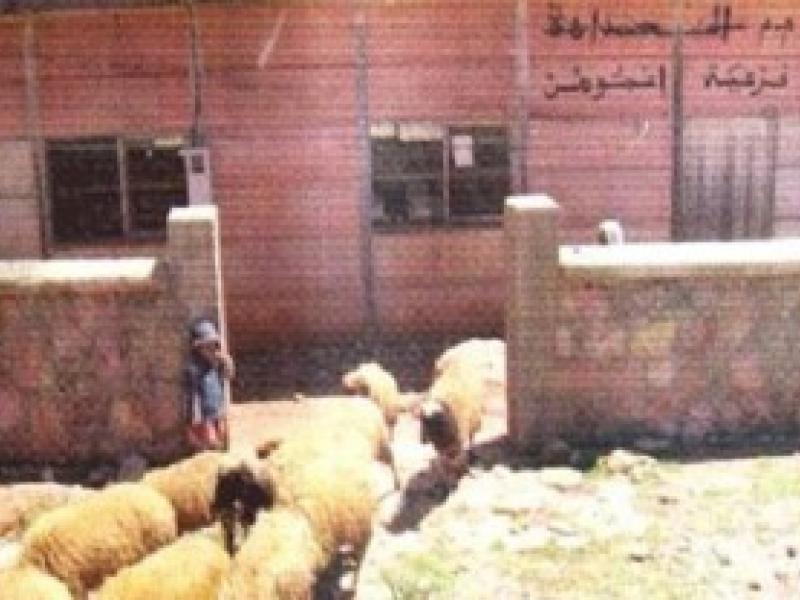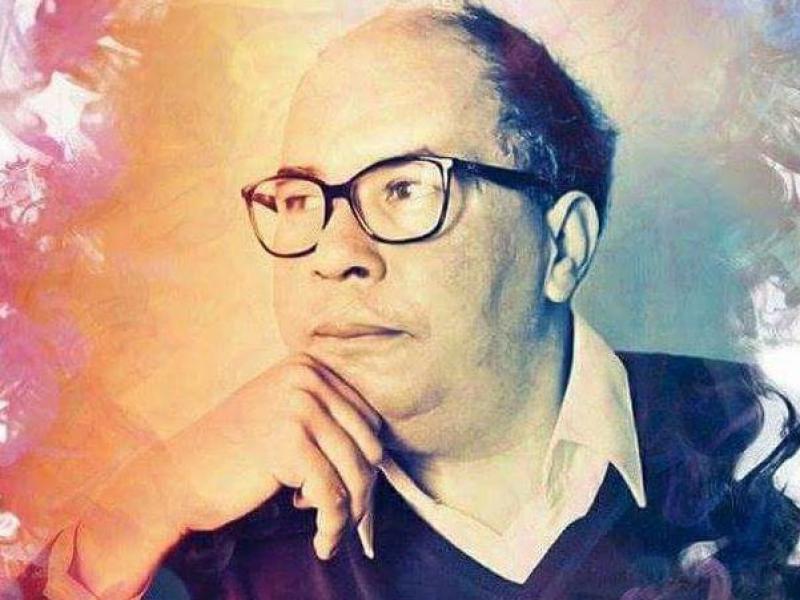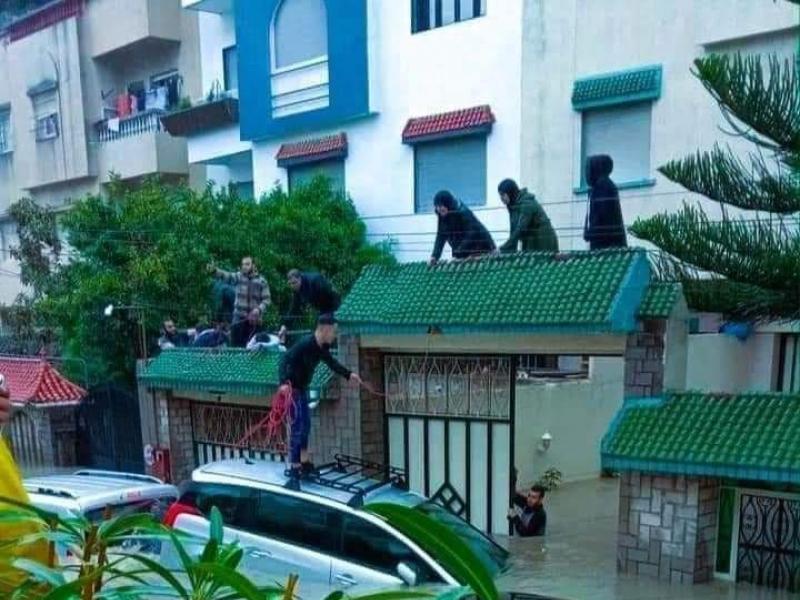
تفاصيل صادمة عن المصنع الذي اودى بحياة العشرا ...
Feb 08, 2021 0
علاقة بكارثة غرق مصنع للأقمشة بطنجة الموغرابية صباح اليوم والذي اودى بحياة العشرات من العمال وج ...
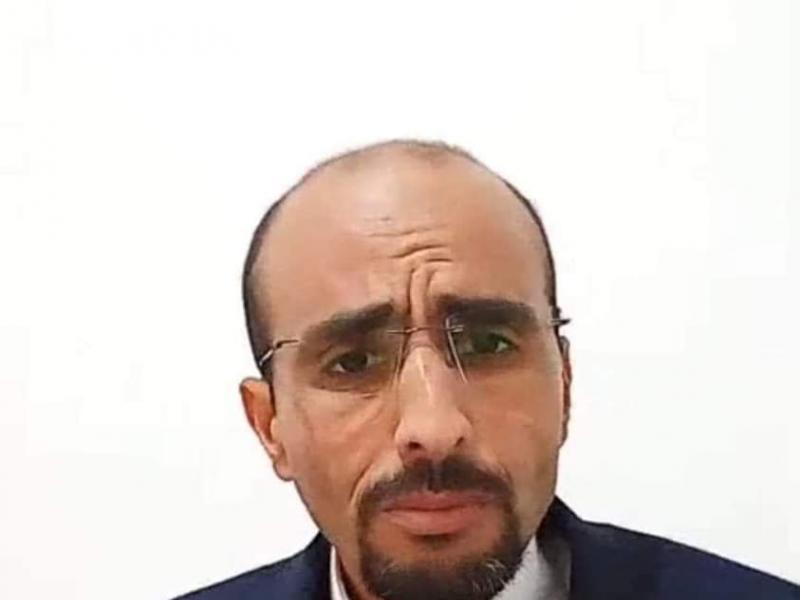
استاذ جامعي يفضح : الشواهد الجامعية تباع وتشت ...
Oct 17, 2020 0
لا حديث الأمس و اليوم في جامعات و كليّات المغريب من شماله إلى جنوبه إلا على هاد السيد، عبد الكب ...
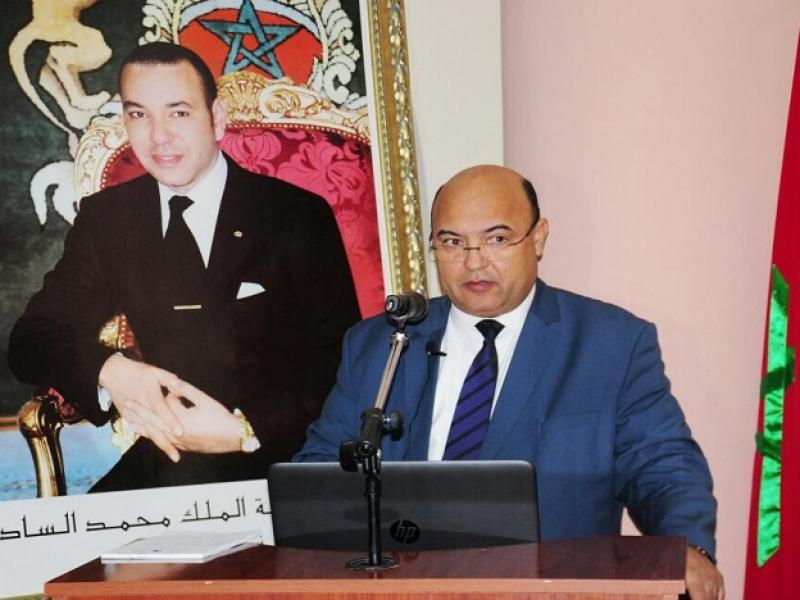
اختلالات في محاربة كورونا (كوفيد19) بالأكاديم ...
Sep 29, 2020 0
كد مجموعة من الأساتذة بالأكاديمية الجهوية للتربية والتكوين بمراكش آسفي، أن التعليم عن بعد غير ...
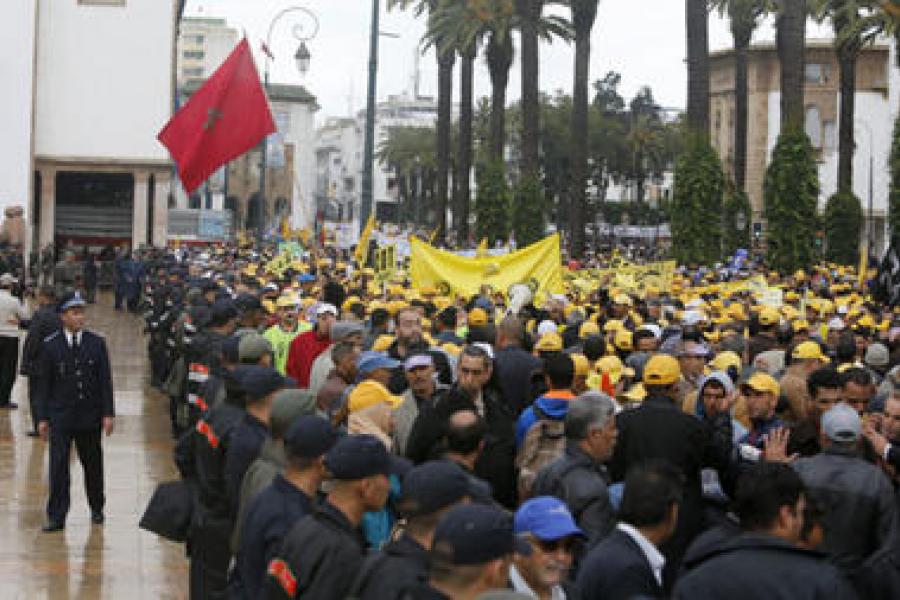
The Christian Science Monitor
[left][left]Rabat, MoroccoAvenue Mohammed V, a wide street that runs directly through Rabat’s centre-ville and past Morocco’s parliamentary headquarters, is the site of nearly daily protests [/HTML]
The Christian Science Monitor
Rabat, Morocco
Avenue Mohammed V, a wide street that runs directly through Rabat’s centre-ville and past Morocco’s parliamentary headquarters, is the site of nearly daily protests against the country’s government
Living in Morocco in late 2012, most days I saw the protesters tussle with the police, grow bored, and disperse, laughing over the chase like American children playing tag during recess.Avenue Mohammed V, a wide street that runs directly through Rabat’s centre-ville and past Morocco’s parliamentary headquarters, is the site of nearly daily protests against the country’s government
But last November, I witnessed something different: hundreds of unsmiling protesters blocking both sides of the street, demanding government jobs in an economy with massive unemployment.
The crowd screamed as 40 or so policemen rushed at them with heavy batons. A brazen man chanting phrases in Darija, Morocco’s Arabic dialect, was hit hard in the leg and fell to the ground, his mouth stretched open in pain.
A day later, the protest was written up in one of Morocco’s largest papers, Assabah, with an inexplicable headline, “Protesters Plan to Kill Policemen and Explode Military Barracks.”
Though Morocco is technically a constitutional monarchy with an elected parliament, the king holds all of the power, including power to dissolve parliament. Government control also extends to Assabah, and most of the public spaces in Morocco.
But the country was not immune to the protest movements that have swept across North Africa and the Middle East over the past two years. In fact, on a single day in February 2011, tens of thousands of Moroccans took to the streets all over the country to challenge the king’s power.
And to hear that demonstration’s leaders talk today, and to see the daily protests continue, the fervor behind the initial protest remains quietly, patiently alive.
The February 20 movement
“I have just now regained feeling in my cheek,” says Hamzah Mahfoud, a leader of Morocco’s February 20 Movement, which organized the initial protests. We were sitting at Café du France, a Casablanca establishment filled with cigarette smoke and half-empty glasses of café noir.
The injury Mr. Mahfoud was referring to was the result of a beating he received in March 2011 for writing slogans critical of the government.
He pulled out his phone to show me a photo of himself just before the beating. He is against a wall as seven policemen in dark blue uniforms surround him with batons raised. His own hands are empty, his face panicked. It was his third police beating, he recounted, and the worst so far.
After Mohamed Bouazizi, a frustrated street vendor in Tunisia set himself on fire in December 2010, sparking the so-called “Arab Spring,” tens of thousands of Moroccans like Mahfoud protested on Feb. 20, 2011 to challenge the power of King Mohammed VI.
But the movement was cast into the shadows almost as quickly as it erupted when the king reformed the Constitution less than a month later, promising a new rule of law that instituted parliamentary elections. Many were surprised by the king’s immediate responsiveness to the movements, and waited in anticipation when elections were held the following November, and a moderate politician named Abdelilah Benkirane was named prime minister.
The king and prime minister are not the primary object of the activists’ concern. What does worry people like Mahfoud – and what the February 20 Movement is still seeking to reform – is the makhzen, the king’s inner circle of a wealthy elite, composed primarily of royal notables, businessmen, affluent landowners, secret service bosses, and top-ranking military personnel.
Although the breadth of their power is difficult to measure, the makhzen serves as the king's intimate coterie, controlling the economy, policy decisions, and press. It is a group as ambiguous and discreet as it sounds.
Mahfoud began to protest against the opaque power of the makhzen two years ago. Standing on a moving platform with a microphone, primarily in Casablanca, he chanted slogans and wrote out signs for people to carry,
“Our people want freedom and dignity,” his signs read in Arabic. “We want a popular democratic constitution.” “Prosecute violators of human honor.” “If you talk, you die. If you don’t talk, you die. So you’d better talk and die.”
Soon after, three to four government men began to follow Mahfoud wherever he went.
“They parked a car outside of my apartment and stayed there night and day. They started rumors on the Facebook and Twitter that I was gay, and that I was using the movement to rape little girls,” he said.
Moroccan activists tell me that the king’s interior circle is the brains behind the police, the people who decide the caliber of beating someone should receive, when to take someone to jail, when to relent, what can be published by the Moroccan press, when to stir fear, and how far to go in creating paranoia.
Being followed
I didn’t know what I was getting myself into when I moved into an apartment on Avenue Mohammed V, in the center of Rabat, with a view of the daily protests outside the parliament building. For the previous three months I had been living with a Moroccan family in Rabat’s ancient medina, studying journalism and Arabic.
Then, for a story on Moroccan journalists as political activists, I began interviewing people in public cafes of their choosing. The terrace of the Hotel Balima, they suggested. The garden cafe. The cafe by the flowers. I soon learned that these were the popular venues where activists, especially the young February 20 leaders, liked to hang out, a passive-aggressive way of remaining present.
I began noticing the company of older, well-dressed men who would sit a little too close to my table as I conducted interviews, and a little too quietly to be typical Moroccan men. I also realized that the activist-as-journalist angle was not the most interesting or important story I could be doing.
One afternoon I walked into the sun-filled street to find two men standing outside my apartment door, a tall, middle-aged man in a tan coat who looked familiar and a shorter man in a black suit who didn’t. They looked at me in a way I will never forget. It was a look that said, “We do not like what you are doing.”
I walked slowly to my favorite yogurt vendor and they remained behind me as I stood in line, then behind me as I walked down Mohammed V, unsure of where I was headed. I began to window shop, hoping they would grow bored and pass me, hoping it was all in my head.
Keep calm and carry on.
That slogan began in 1939 in Great Britain, when the British government tried to raise the public’s morale in the event of a Nazi invasion. I wrote it out and put on my nightstand and made it my personal slogan for the days of paranoia and uncertainty that were to follow.
I lost my two followers in the walled-in medina. It’s a place with winding alleyways smelling of fresh fruit and frying fish, dirty streets with little boys playing futbol, and toothless beggars holding up their leathery hands asking for dirhams. It had never felt more comforting.
“You are fine. They just want to know what you are up to,” my journalism professor had said in response to my concerns, after making some calls to investigate.
My host family’s friend explained the system as we sat eating harira and sipping sweet tea the next evening.
There is a hierarchy of policemen, he explained in French. They must know what is going on at all times. If they don’t, their superiors will punish them. They are just trying to intimidate you. They won’t hurt you, he assured me.
Even so, I found myself overstaying teatime and eating dinner that night with my host family, scared to exit the blissful comfort of their tiled walls and Turkish soap operas that ran on their television screen 15 hours a day.
Repeated arrests
I set out for another interview a few nights later in the company of my Moroccan journalist friend Ouassi Essam. While we waited for Nizar Bennamate, a young key organizer of the February 20 Movement, two men walked slowly past our table. I recognized the tan coat immediately. They had been sitting at the juice bar outside of my apartment, Mr. Essam informed me.
Mr. Bennamate showed up five minutes later. He greeted friends on his way to our table, high-fiving them with such ease that you never would have known that they were some of the leading figures of a movement trying to change the structure of an entire country.
A graduate of l’Institut Supérieur d’Information et Communication, Morocco’s top journalism school, Bennamate works as a journalist for Web TV de la Fondation Abderrahim Bouabid, a pro-democracy think tank. In 2009, he was arrested near his home in Marrakech and taken to the Jemaa L Fna prison for having started the Facebook page, “Moroccans in Direct Dialogue with the King.” It initially had 20 followers, but soon evolved into a much larger Facebook group, “Freedom and Democracy Now.” As it turns out, it would play a major role in spreading word of the Feb. 20, 2011 protest.
On May 15, 2010, Bennamate was arrested a second time for organizing a public picnic during Ramadan. The picnic was a political statement encouraging citizens to assert their desired freedom of expression in the public sphere. Bennamate was taken by van to an underground prison in Temara, a neighboring city of Rabat, where policemen wearing helmets hit him with batons until he was hospitalized. He had to get stitches, and remained in bed for a week. He was unable to sleep on his back.
In the weeks leading up to February 20, 2011, Bennamate and the other leaders met daily, distributing flyers, translating signs from French into Arabic, creating YouTube videos, alerting followers through Facebook, and writing out exactly what they wanted to change in their government.
“It was a very diverse group protesting. We had a lot of university students marching, very well-educated people who understand how the government functions and are aware of the country’s problems,” he says.
Moroccans of all religious sects and socioeconomic backgrounds turned out in force on the designated day, demanding that their government be changed.
Mr. Mahfoud, the activist I first met at Café du France, was stationed on a moving platform with a microphone in Casablanca, addressing people in Darija. “Liberty to the people,” they repeated after him. Just then, he says, the German political philosopher Hannah Arendt came to his mind. She had written that, just 10 minutes before a revolution, there is an air of unpredictability, an “anything can happen” excitement. Mahfoud says he felt that feeling that day: a feeling of unadulterated uncertainty.
“I’m still crazy enough to think I can change the world,” he said that day.
Soon after, on March 9, King Mohammed VI publicly described the new Constitution.
“It’s a façade,” Bennamate tells me of that speech. “What we asked for was a clear and free political environment, and we do not have this. We will not stop until we have a real and transparent democracy. It is the only solution.”
Little has changed in the country since the reformed Constitution was announced. Unemployment is rising. There have been at least 20 cases of self-immolation in the past two years. The press is not free. The king continues to control the economy. Remnants of the initial February 20 Movement continue today, but in very weak, disorganized spurts. Their momentum is all but gone.
But Bennamate is hopeful. “Changing an entire mentality is hard,” he says. “The people don’t expect a new president every four years like the United States. We must be patient.”
No retreat
Hamzah Mahfoud loves books. Listing the authors that influenced him the most, Gandhi was first, followed by Plato, Dostoevsky, Nietzsche, Rousseau, and the Greek writer Nikos Kazantzakis. Now he works as a journalist covering art and culture for Morocco’s Hespress, an independent weekly magazine.
Why didn’t he simply retreat to academia, where he would be safe to read and write and think deeply about the world without being harmed by it?
“I think the real world is a bad place and it needs to be fixed before you can live in another dimension,” he says after a long pause.
Did he think this before or after the police hit him for the first time? Before or after seven protesters were beaten to death for participating in the February 20 Movement? Before or after young rapper El-Haqed was jailed for two years for his songs?
“There is no difference between a literate citizen and an illiterate citizen,” he says. “But there is a difference between an aware citizen and an unaware citizen. The aware are thinking. The unaware either don’t understand the meaning of democracy or they are too rich to care.”
The February 20 Movement is not the first time Morocco has seen a movement for democracy. In 1959, under Hassan II’s rule, a group of students and other young people calling themselves the National Union of Popular Forces (UNFP) took to the streets.
They demanded something eerily familiar to today’s movement: a free and modern democratic state. I sat down for coffee one evening with Aiad Moha, a philosophy professor at Mohammed V University. “They were all wondering the same question,” he explains in French. “They wanted to know why foreigners have developed so much faster than the Arab world.”
The UNFP endured 16 years in which is never gained enough momentum to succeed, never lost enough to disappear. In 1975 it became an official party in parliament, its name changed to the Socialist Union of Popular Forces (USFP).
“They joined Congress because they believed they could make a change from the inside,” explains Mr. Moha, now active in the USFP. By then, however, the founding fathers were almost absent from the scene.
Mehdi Ben Barka, the mathematics major who led the initial protest, was exiled in 1963 for an alleged plot against Hassan II. In 1965, he went “missing” in Paris. The other major leader, Abed al-Jabri, remained slightly involved in the party, retreating to the academic world to become a leading pan-Arab intellectual and a philosophy professor at Mohammed V University.
I ask Mahfoud what he thought of the original UNFP movement. “We will not make the same mistakes as Ben Barka and Jabri,” he says. “Their mistake was they thought they could change from within. We will not be co-opted by the government.”
A changed view from the terrace
Sitting on the terrace of Hotel Balima, overlooking Avenue Mohammed V just across from the parliament building, one sees life pass swiftly by.
Two years ago, this place was a sea of bodies chanting for freedom as they marched down Avenue Mohammed V, full of crazed energy and hope.
Everywhere was the February 20 Movement’s slogan, Mamfakinch, an Arabic word that translates as “We will not stop until we are through.”
Now a terrace view of Avenue Mohammed V reveals a far less charged scene. There are women in heels and hijabs, men in fancy black suits with briefcases, shoe-polishing beggars in beat-down jackets, homeless men and women with missing limbs, and clumps of policemen standing under trees along the avenue, batons strapped to their belts.
There, too, are the usual guards at the parliament building toting guns longer than their arms. And the usual handful of protesters, orderly yet focused, ready to disperse at the first sign of a raised baton.
Maddy Crowell is a junior at Carleton College and was in Morocco on the SIT Study Abroad journalism program. She produced this story in association with Round Earth Media, a nonprofit organization that mentors the next generation of international journalists.
Reporting was contributed by Ouassi Essam and Walid El Aouni.
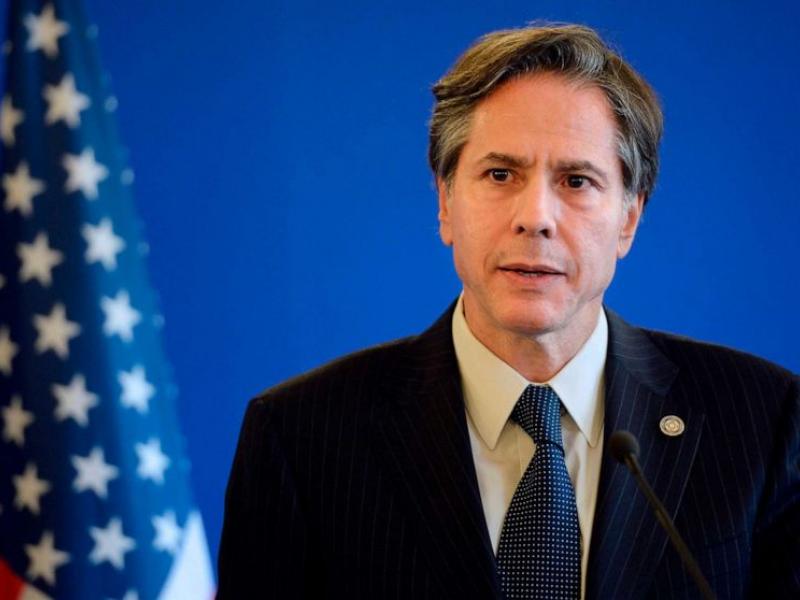
وزير الخارجية الأمريكي يصدم الموغريب بتصريح أ ...
Jan 27, 2021 0
صوت اليوم مجلس الشيوخ الامريكي بالقبول على تعيين انطوني بلينكن في منصب سكرتير الخارجية في إدارة ...
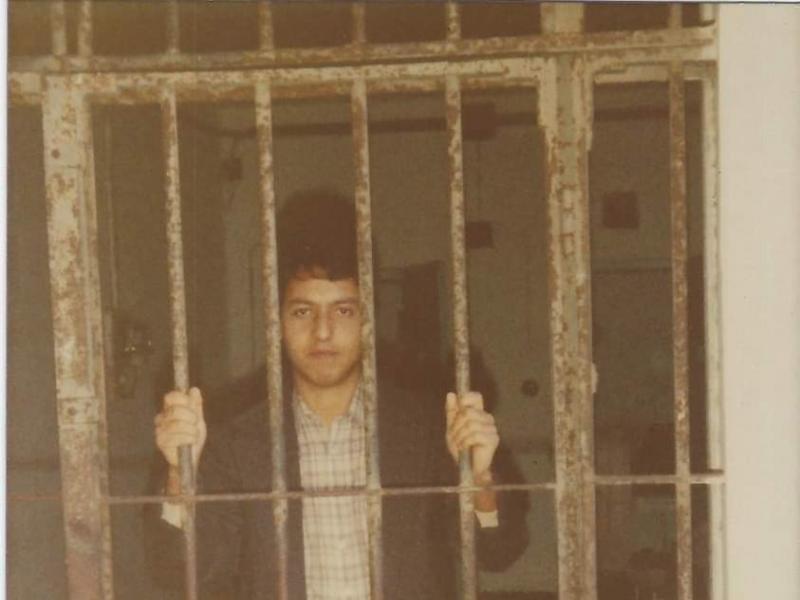
مبعوث أممي يستعيد سنوات تعذيبه داخل السجون ال ...
Jan 10, 2021 0
عبر تدوينة فايسبوكية استعاد المناضل اليساري السابق جمال بنعمر والمسشار الخاص السابق الامين الع ...
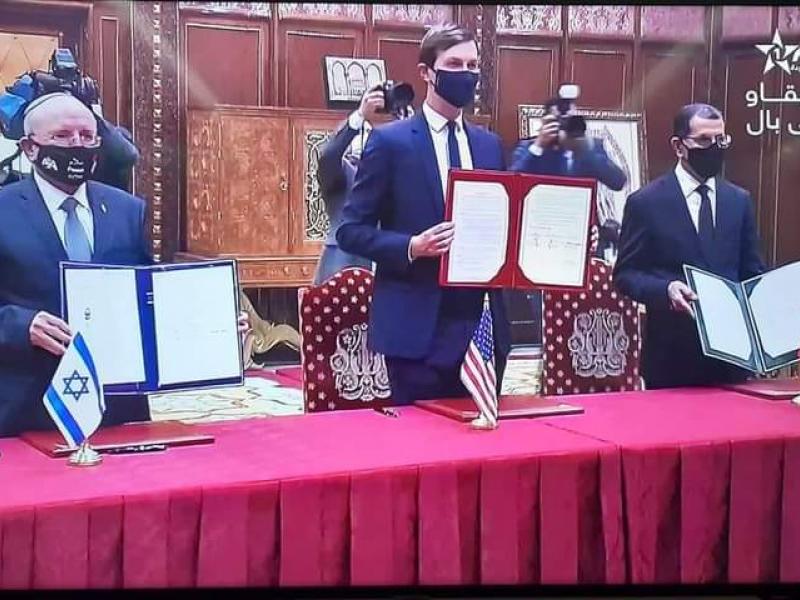
الاعلان الرسمي المشترك بين أمريكا والمغرب واسرائيل
Dec 22, 2020 0
الرباط – في ما يلي النص الكامل للإعلان المشترك الذي وقعته اليوم الثلاثاء المملكة المغربية والول ...
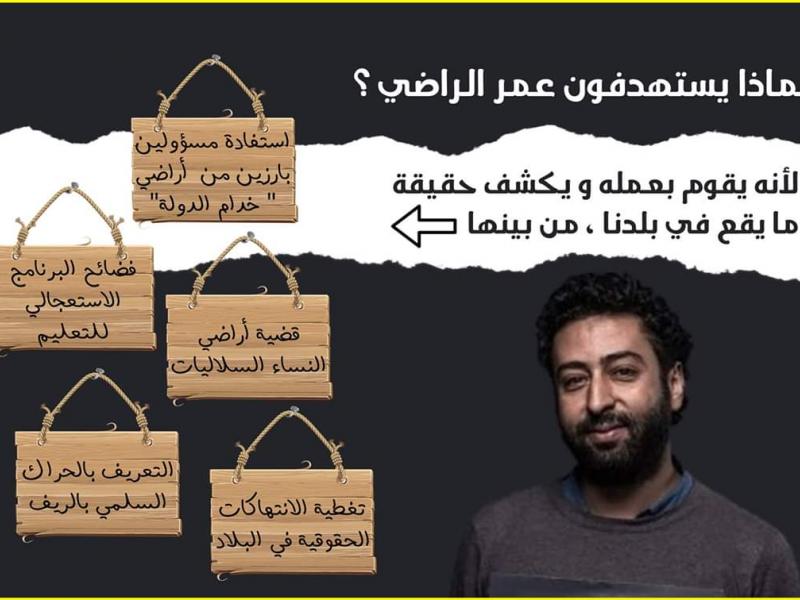
عمر الراضي : مارسنا الجنس رضائيا كراشدين وسأذ ...
Jul 29, 2020 0
بعدما قررت الدولة المغربية متابعة الصحافي عمر الراضي في حالة اعتقال بتهم غبية وسريالية اي اغتصا ...
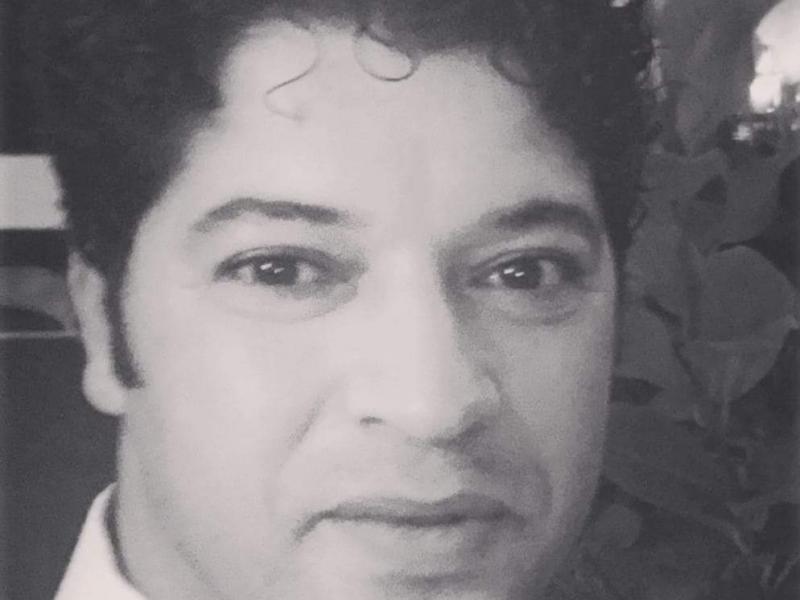
عزيز إدمين : تعالو لنطلع على الارقام الفلكية عن الربع الحقوقي بالمغرب !!
Aug 19, 2021 0
الريع الحقوقي ...
أقصبي: تقرير لجنة النمودج التنموي مليء بالمحر ...
May 31, 2021 1
تقرير لجنة النموذج التنموي مليء بالمحرمات وبقي في حدود الخطوط الحمراء
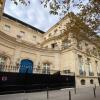
ملك المغرب يبرع عائلته بمنزل باريسي قيمته 80 مليار
Oct 02, 2020 0
إقتنى ملك المغرب محمد السادس مؤخرا إقامة فخمة في أحد أغلى الاحياء الباريسية بمبلغ 80 مليون يورو ...
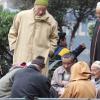
إحصائيات صادمة عن المغرب
Aug 26, 2020 0
أرقام صادمة كشفت عنها الندوة الرقمية المنظمة من قبل الشبيبة العاملة المغربية حول موضوع "الحماية ...
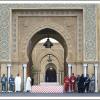
بلومبيرغ : بسبب كوفيد 19 المغرب يغلق الهامش ا ...
Jul 28, 2020 0
المغرب ينقلب على الديمقراطية بسبب جائحة كورونا ، هكذا عنونت أحد اشهر الصحف الاقتصادية بأمريكا ب ...
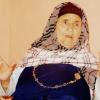
وفاة الرايسة "خدوج تاحلوشت" : صوت الاباء والابداع
Jun 04, 2019 0
وفاة الرايسة "خدّوج تاحلوشت": صوت الإباء اللاذع
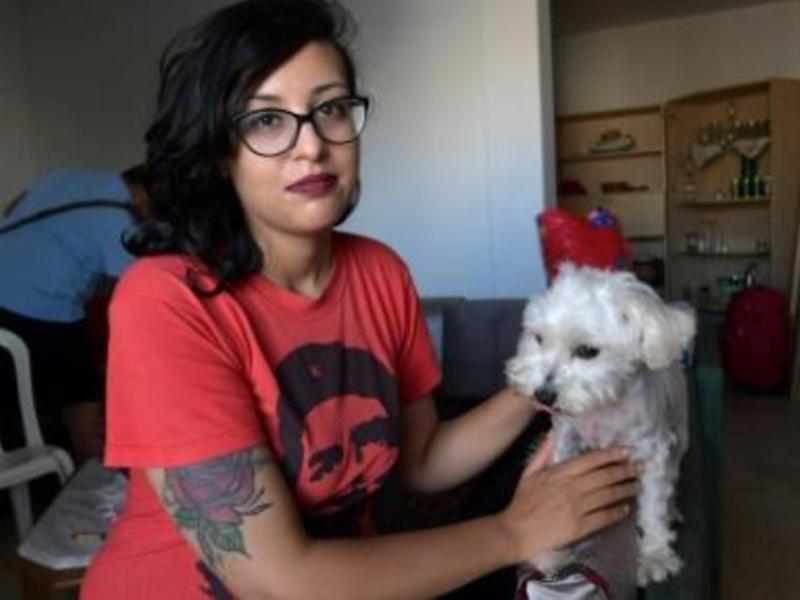
"سورة كورونا" تلقي بشابة تونسية في السجن
Jul 16, 2020 0
قضت المحكمة الابتدائية بتونس العاصمة بسجن المدونة التونسية آمنة الشرقي لستة اشهر واداء غرامة قدرها الفي دينار بتهمة الدعوة والتحريض على الكراهية بين الاديان والاجناس والسكان ولذلك على خلفية اعاد ...
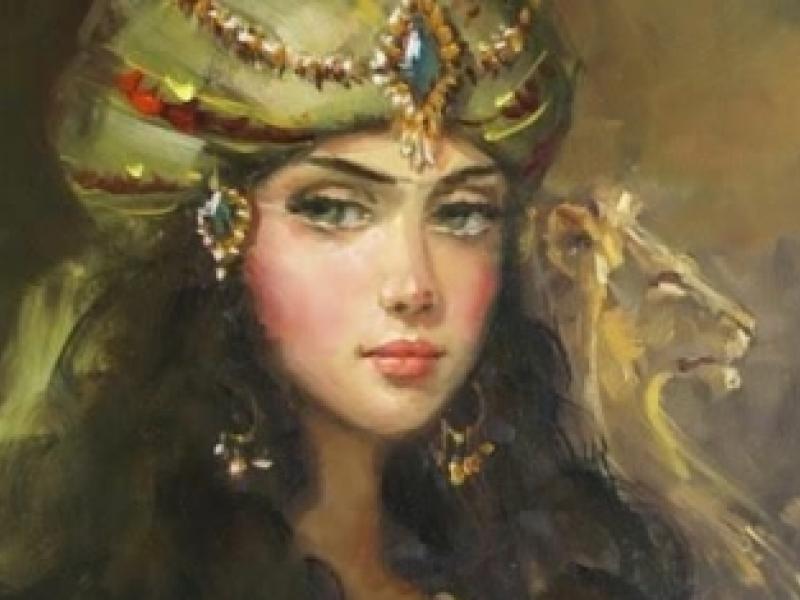
أروى القيروانية.. المرأة التي ألزمت أبا جعفر المنصور بأول عقد يمنع تعدد الزوجات في الإسلام
Jul 06, 2020 0
بقلم اسماء رمضان
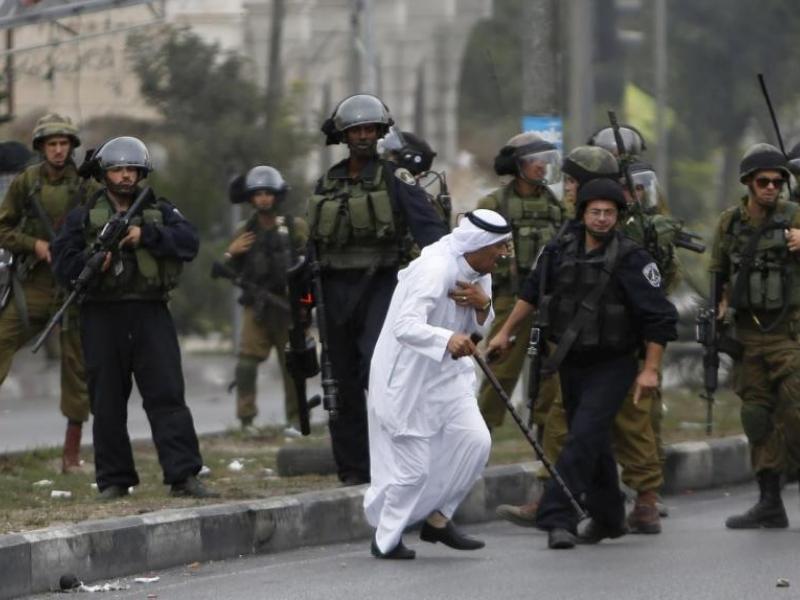
وزارة الداخلية المغربية تمنع مسيرة فلسطين
May 19, 2021 0
قررت السلطات المغربية منع المسيرة الشعبية المقرر تنظيمها بالعاصمة الرباط يوم الاحد 23 ماي الجار ...
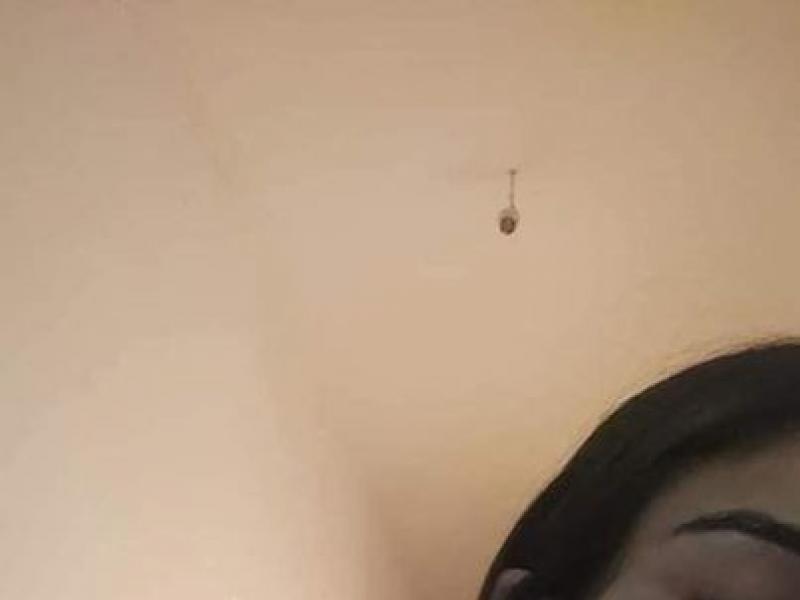
كوميساريا تامسنا تتستر على بوليسي عنف استادة ...
Apr 23, 2021 0
تعرضت الاستاة هدى جبيري لاعتداء عنيف بسوق قرية تامسنا من قبل بوليسي متعجرف بعدما رفضت الادعان ل ...
وتستمر فضائح مستشفى ابن رشد بالدار البيضاء
Apr 06, 2021 0
نصيب من الفضائح الصحية يشهده المستشفى الجامعي ابن رشد بالدار البيضاء والغالب فيه هو «طرد المرض ...

